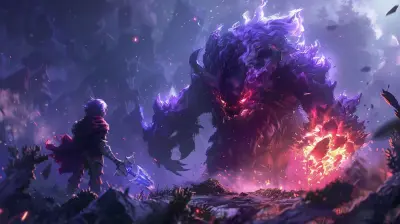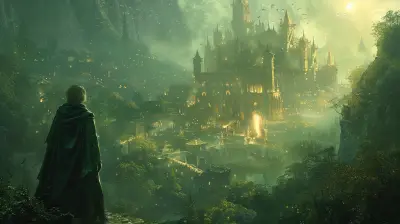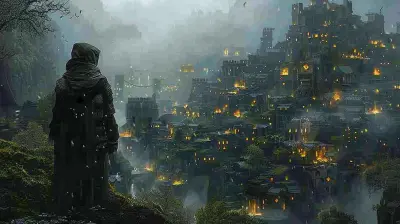The Evolution of Fantasy RPG Soundtracks: Composers Who Changed the Game
4 July 2025
When you think of fantasy RPGs (Role-Playing Games), what’s the first thing that comes to mind? Epic quests? Sword-wielding heroes? Complex storylines? Sure, those are staples. But think about this for a moment—what bridges you from your couch to the heart of those mystical lands? The soundtracks.
You see, in the realm of gaming, music isn’t just some background noise. It’s the soul of the game, the unsung storyteller pulling on your heartstrings, raising your pulse during battles, or leaving you teary-eyed in poignant scenes. Over the decades, fantasy RPG soundtracks have evolved into an art form all their own, thanks to a handful of visionary composers. Let’s dive deep into how these maestros have literally changed the game and how their scores continue to echo in our heads (and playlists). 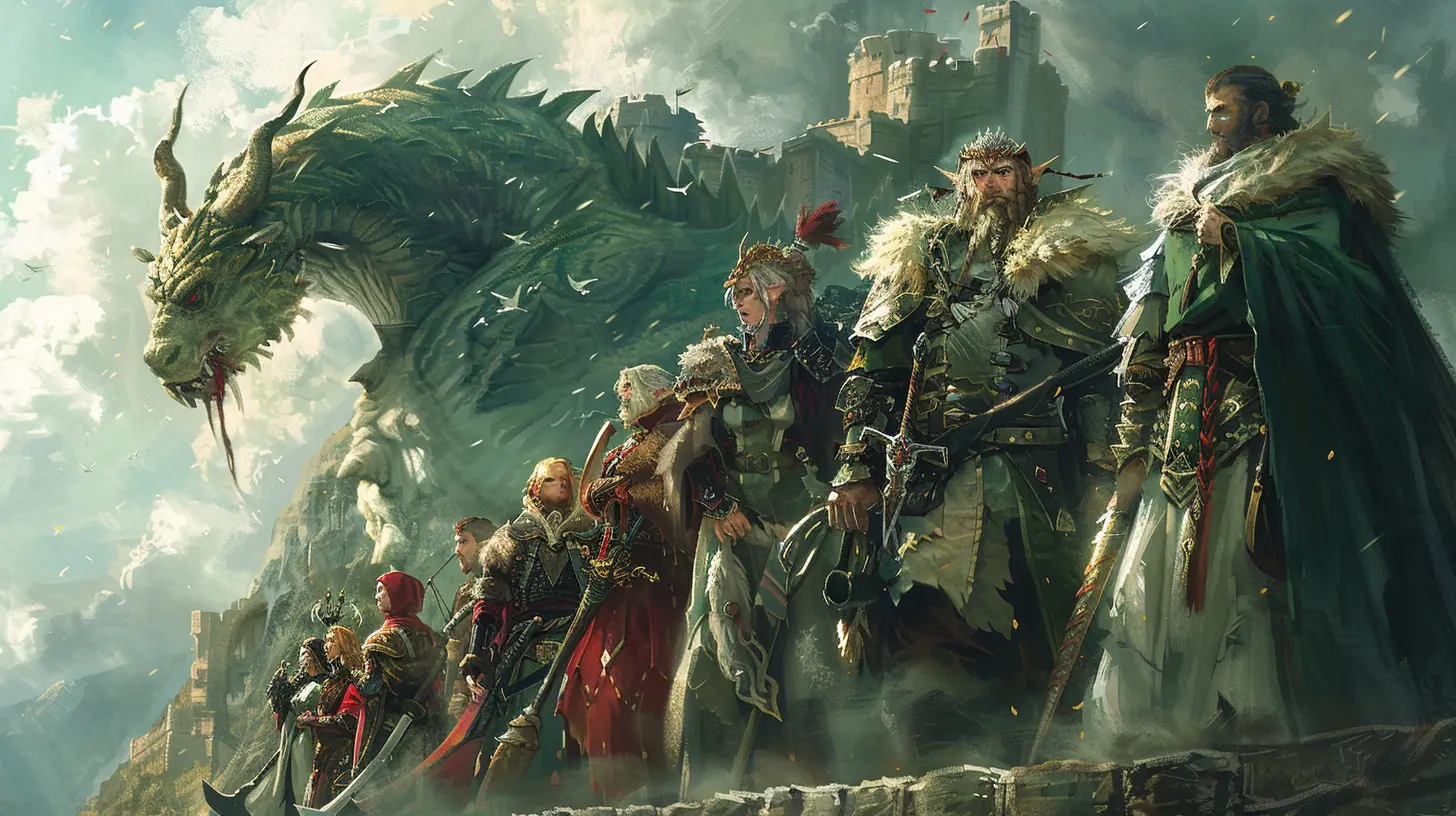
The Early Days: When Music Was Just “Noise”
Back in the day, gaming soundtracks weren’t much to write home about. It was all bleeps and bloops, limited by technology rather than creative ambition. Fantasy RPGs, in their infancy, were no different. Sure, it was charming and nostalgic, but music back then lacked the emotional punch we’re so accustomed to now.Take the 1980s, for example. Early RPGs like Ultima and The Bard’s Tale barely scratched the surface when it came to music. These scores were simple chiptunes—functional, but far from the sweeping orchestral masterpieces of modern gaming.
But here's the kicker: even within those technical limitations, composers started experimenting. They were planting the very seeds that would later grow into the epic soundscapes we adore today. 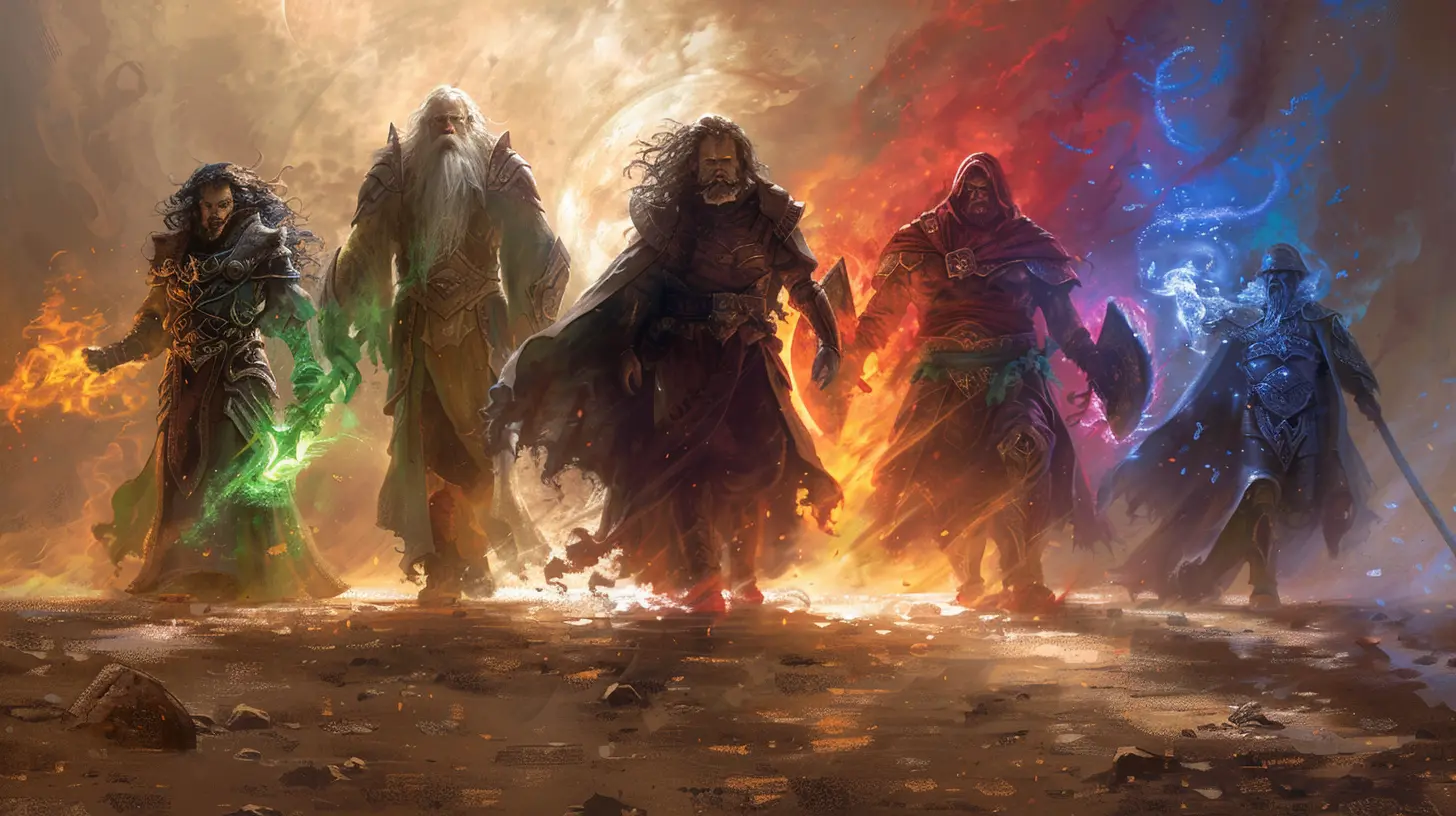
A Turning Point: Enter Nobuo Uematsu
If we’re talking about RPG music and we don’t bring up Nobuo Uematsu, it’s practically a crime. This legendary composer is often referred to as the “Beethoven of video game music.” And honestly? That’s no exaggeration.When Uematsu joined Square (now Square Enix) in the late 1980s, the company was working on a little game called Final Fantasy. The game itself was groundbreaking, but its soundtrack? Revolutionary.
Why? Uematsu had this uncanny ability to marry melody with emotion. Tracks like “Prelude” and “Battle Theme” were simple yet memorable, embedding themselves into players' minds like earworms. By the time Final Fantasy VI and Final Fantasy VII rolled around, Uematsu was composing full-blown operatic scores. I mean, can we talk about One Winged Angel for a second? Choirs, Latin lyrics, and an almost absurd level of drama—it was like nothing gamers had heard before.
Uematsu’s work didn’t just enhance the player’s experience; it elevated video game music into a legitimate art form. Suddenly, people weren’t just playing fantasy RPGs—they were feeling them. 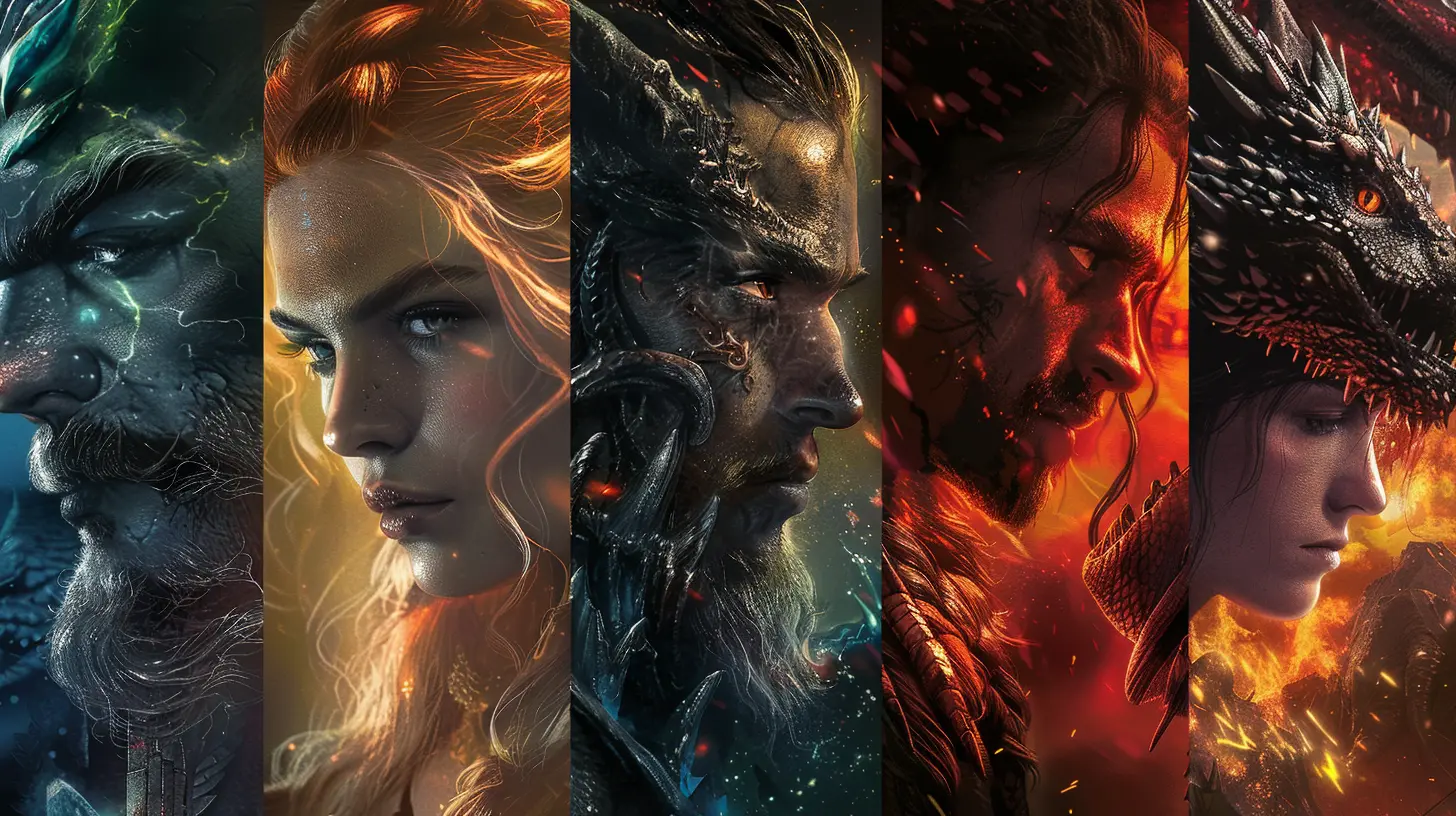
The Western Wave: Jeremy Soule and The Elder Scrolls
While Japan was dominating the RPG music scene in the ’90s, the West was quietly brewing its own revolution. Enter Jeremy Soule, the “John Williams of video games.”If you’ve played The Elder Scrolls series, you know exactly what I’m talking about. Soule’s work on Morrowind, Oblivion, and Skyrim didn’t just set the mood—it was the mood. The moment you hear the iconic “Dragonborn” theme from Skyrim? Boom. You’re transported to Tamriel, sword in hand, ready to take on anything.
What makes Soule’s music stand out is its cinematic quality. He’s a storyteller in his own right, using music to paint landscapes as vast and detailed as the game’s world. His scores are lush, emotional, and, above all, immersive.
Fun fact: Soule often composes as if he’s scoring a film rather than a game. And you can tell. His soundtracks have this larger-than-life quality that makes you feel like the hero of your own personal blockbuster. 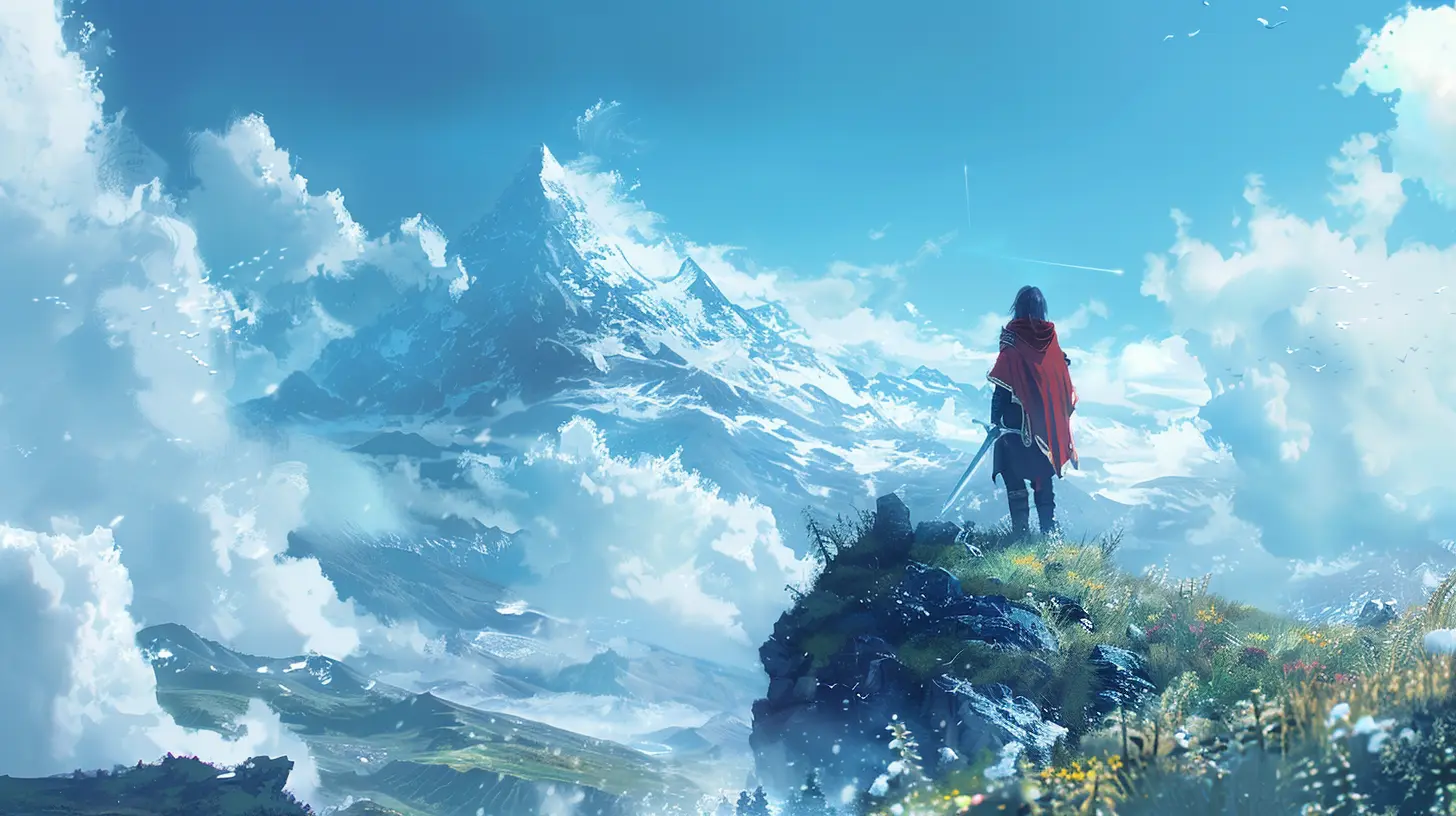
Out of the Shadows: Yoko Shimomura’s Journey
Let’s shift gears for a moment and talk about Yoko Shimomura—because wow, does she deserve a standing ovation. While her work spans multiple genres, Shimomura is probably best known to RPG fans for her contributions to the Kingdom Hearts series.Imagine this: you’re running through lush, Disney-inspired worlds, battling Heartless, and then Simple and Clean starts playing in the background. Goosebumps, right? That’s Shimomura’s magic.
Her compositions strike a delicate balance between whimsy and emotion, perfectly capturing the essence of fantasy RPGs. Whether it’s the hauntingly beautiful “Dearly Beloved” or the adrenaline-pumping battle themes, Shimomura has an unparalleled gift for making every moment feel special.
The Modern Era: Experimentation and Fusion
Fast forward to today, and fantasy RPG soundtracks are more diverse than ever. Modern composers aren’t just sticking to traditional orchestral scores—they’re experimenting, blending genres, and breaking every rule in the book.Take The Witcher 3: Wild Hunt, for example. Composer Marcin Przybyłowicz fused Slavic folk music with sweeping orchestral arrangements to create something truly unique. Tracks like “Geralt of Rivia” and “Kaer Morhen” are dripping with personality, grounding the game’s fantasy world in a sense of cultural authenticity.
Or how about Hollow Knight? Christopher Larkin’s score is a haunting mix of piano, strings, and atmospheric sounds. It’s minimalistic but incredibly effective, proving that less can sometimes be more.
And then there’s Divinity: Original Sin 2, with Borislav Slavov’s dynamic soundtrack that changes based on your character’s race and decisions. That’s right—the music adapts to you. How cool is that?
Why Soundtracks Matter: Beyond the Game
Here’s the thing: fantasy RPG soundtracks aren’t just about enhancing gameplay. They linger with us long after we’ve put down the controller. They’re what we hum on our commute or listen to when we need to focus. They’re a connection to the worlds we’ve explored and the adventures we’ve had.Think about it. When you hear the opening notes of the Final Fantasy prelude, doesn’t it instantly transport you to another time and place? That’s the power of music.
What’s more, these soundtracks have gained recognition outside the gaming world. Orchestral concerts celebrating video game music, like Distant Worlds: Music from Final Fantasy and The Legend of Zelda: Symphony of the Goddesses, have sold out venues worldwide. Gaming soundtracks are no longer niche—they’re cultural phenomena.
The Future: Where Do We Go From Here?
So, what’s next for fantasy RPG soundtracks? Honestly, the sky’s the limit. With advancements in technology, composers have more tools than ever to experiment with. Adaptive music systems, like the one in Divinity: Original Sin 2, are bound to become more commonplace.We’re also seeing a rise in collaboration between game developers and mainstream musicians. Imagine a fantasy RPG score co-created by a Grammy-winning artist. It’s not as far-fetched as it sounds—look at how Hildur Guðnadóttir (Oscar-winning composer of Joker) is scoring the upcoming Battlefield 2042.
The beauty of it all is that fantasy RPG soundtracks will continue to evolve, just like the genre itself. And as long as composers keep pouring their hearts into every note, we’ll be here, ready to embark on our next epic adventure—controller in one hand, tissues in the other.
Wrapping Up
Fantasy RPG soundtracks are more than just music—they’re the emotional backbone of the games we love. From Nobuo Uematsu’s operatic genius to Jeremy Soule’s cinematic masterpieces, these composers have reshaped how we experience gaming. And as the industry continues to grow, we can’t wait to see where the next generation of maestros will take us.So, the next time you’re in the middle of an epic quest, stop and listen. Really listen. Because the soundtrack? That’s where the magic truly lies.
all images in this post were generated using AI tools
Category:
Fantasy RpgsAuthor:

Jack McKinstry
Discussion
rate this article
2 comments
Calaris Bryant
Echoes of realms long forgotten intertwine with whispers of innovation. As composers wield their magic, each note conjures a new dimension of adventure. What secrets do these soundtracks hold, waiting to be unearthed?
November 13, 2025 at 4:53 AM

Jack McKinstry
Thank you for your poetic insight! Indeed, the soundtracks of fantasy RPGs are rich with hidden layers, blending nostalgia and innovation to create immersive worlds. Each composer brings a unique magic that enhances our adventures.
Declan Mathews
Great insights on how soundtracks shaped our RPG experiences! Thanks for highlighting these composers!
July 12, 2025 at 3:01 PM

Jack McKinstry
Thank you! I'm glad you enjoyed the insights on these influential composers!
